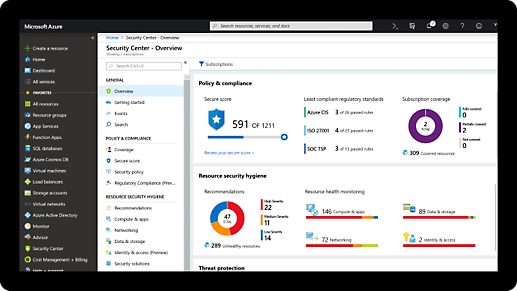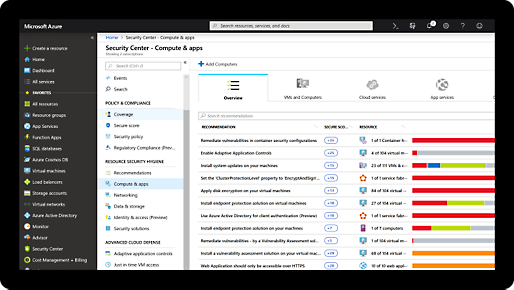Azure Container Storage
Power stateful containerized workloads with intelligent, cloud-native storage
Unlock high-performance storage for your Kubernetes workloads
Azure Container Storage is a volume-management service built natively for Azure Kubernetes Service (AKS). Simplify creating and managing persistent volumes for production-scale stateful container applications. Use the free managed service in Azure or the open-source version across any Kubernetes cluster.
Achieve fully managed persistent volume deployment and unified volume management for various back-end storage options
Create simple and consistent volume orchestration for stateful workloads via the Kubernetes control plane
Leverage local NVMe drives on select virtual machine families to provide rapid storage for Kubernetes workloads
Quickly scale stateful containers with persistent volumes
Accelerate high-performance stateful workloads
Run stateful container applications on Kubernetes with the high performance of locally attached NVMe disks.


Enable Kubernetes-native volume orchestration
Deploy and manage persistent storage volumes for stateful container applications in AKS, such as PostgreSQL, Kafka, Valkey, and more. Azure Container Storage enables full lifecycle control—including snapshots and storage pools—without switching between platforms.
Use Azure Container Storage with Azure Kubernetes Service (AKS)
Run stateful workloads with ease
Orchestrate volumes consistently using Kubernetes-native APIs for reliable, scalable storage that behaves like part of your application.


Grow with confidence
Rapidly scale out containerized applications with persistent volumes that expand with your demands.
Resize persistent volumes in Azure Container Storage without downtime
Achieve open-source freedom for Kubernetes storage
Run Azure Container Storage with our fully open-source implementation. Install on a Kubernetes cluster, contribute to the project, and customize for your environment, all while benefiting from the same performance and features as the Azure-managed version.
Built-in security and compliance
-
Microsoft has committed to investing $20 billion in cybersecurity over five years.

-
We employ more than 8,500 security and threat intelligence experts across 77 countries.


Maximize cost efficiency with Azure Container Storage and pay only for storage used
Dynamically allocate the right storage for each workload to help avoid overprovisioning and lower total cost of ownership. Azure Container Storage v2.0.0 doesn’t incur usage fees-you only pay for the underlying storage resources.
Get started with an Azure free account
1

2

After your credit, move to pay as you go to keep building with the same free services. Pay only if you use more than your free monthly amounts.
3

Azure Container Storage resources and documentation
Documentation
Explore Azure Container Storage documentation.
Discover Quickstart: Use Azure Container Storage with AKS.
Blog and updates
Read the Azure blog and subscribe to Azure updates for the latest news and information about Azure Container Storage.
Community and Azure support
Ask questions and get support from Microsoft engineers and Azure community experts.
Chat with an Azure support specialist.
Frequently asked questions about Azure Container Storage
-
-
Azure Container Storage supports only Azure Kubernetes Service (AKS) today. Deploy and manage volumes consistently across various backend storage options such as local storage and persistent block storage while using AKS.
-
See the Azure Container Storage quickstart.
-
Azure Container Storage is built natively for containers and provides a storage solution that is highly optimized for creating and managing volumes for running production-scale stateful container applications. It provides higher performance and availability than Azure CSI drivers. Additionally, Azure Container Storage supports storage types such as local volumes and storage area network (SAN), which are not supported by Azure CSI drivers.
-
Azure Container Storage works well for all stateful ReadWriteOnce (RWO) workloads.
-
Yes. See the Quickstart to learn how to enable Azure Container Storage in an existing AKS cluster.
-
Yes, see here: Scale your stateful apps with Azure Container Storage | Microsoft Learn. You can also check out code samples here: Azure-Samples/azure-container-storage-samples: Azure Container Storage code samples (github.com).
